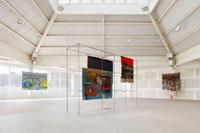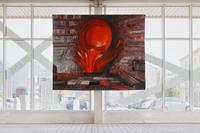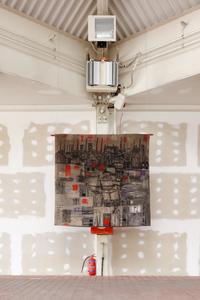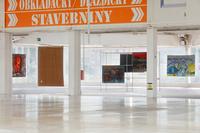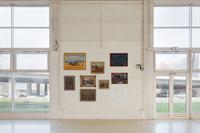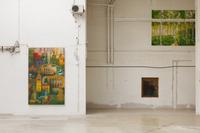decorConcept Decor 2
PLATO’s functional facilities, gradually built in cooperation with artists, are now complemented by a set of artworks loaned by the City of Ostrava, playing the role of “decoration” of the space. The second edition of the Concept_Decor cycle dissolves several examples of different period aesthetics in the huge interior of the former hobby market; aesthetics marking our idea of the Ostrava municipal authority. The works of twelve artists, primarily designed to decorate offices, representation and public rooms of the city hall, have been brought into new contexts. Can they now be perceived as autonomous works of art?
“Municipalities and towns, as well as ministries and various offices or institutions have in their possession a staggering amount of works of art of completely diverse quality. These sets document changing taste, forms of the art trade, the ideological or political climate, as well as social upswing and decline. The carefully constructed image of different types of institutions has been governed, for over a hundred years, by some general idea of proper representation that strengthens the prevailing contemporary ideology, but always with faith in a certain dignity of the given institution. In the hallways, meeting rooms and representative rooms there are not always the best works; nevertheless, a certain concept of quality prevails.
A gradual decline has taken place since the 1970s, culminating in the 1990s, with no attempt to reverse it to this day. The confusion of political, social and cultural values has been reflected in the rejection of the very principle of actively building the cities‘ (and institutions’) image or identity by means of culture and art. Indeed, one can only take seriously those institutions that consciously and consistently build their image and character through art. In the context of a gallery for contemporary art, a revisionist approach to a set of artworks owned by the City of Ostrava represents, among other things, an attempt to remind of the possible images of the city (past and future).”
Marek Porkoný
←→
